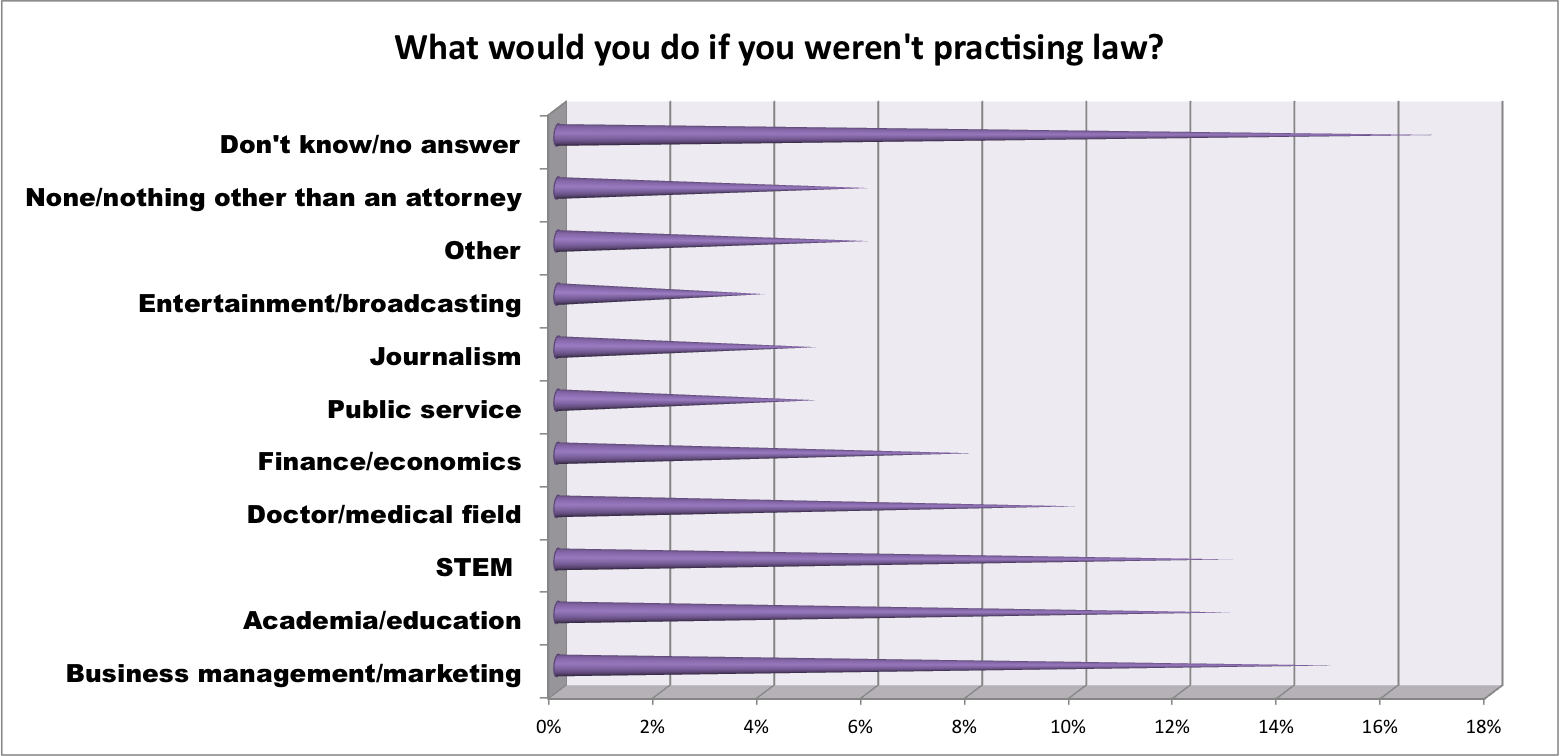You’ve likely asked yourself this question out of curiosity, or perhaps in a moment of mild regret: If I was not a lawyer, what would I be?
 For many Canadian lawyers, the answer is working in business, education, or fields in science, according to a new Robert Half Legal survey released yesterday.
For many Canadian lawyers, the answer is working in business, education, or fields in science, according to a new Robert Half Legal survey released yesterday.
Fifteen per cent of lawyers surveyed said they would have chosen business management or marketing careers in lieu of practising law. Careers in academia and STEM (science, technology, engineering, and math) ranked second to business, with each of those categories getting 13 per cent favorability.
“Even if you’re content with your job, it’s important to periodically examine your career goals to assess whether your priorities or interests have changed,” said Charles Volkert, executive director of Robert Half Legal.
“Lawyers considering second careers may find that the skills, knowledge and experience they possess are a natural fit with a variety of roles outside of the legal field.”
In response to the survey, 10 per cent of lawyers said they’d have become doctors or work in the medical field, while eight per cent said they would have chosen finance, and five per cent would have gone into journalism. Another five per cent said a career in public service would have been their alternative.
For six per cent of respondents, a career outside of law was entirely unimaginable; their response was, “Nothing other than an attorney.”
The biggest group of respondents, 17 per cent, had no clue what they would have done if they didn’t go to law school.
Those last two groups are likely made up of those who have always dreamed of becoming lawyers, says Gene Roberts, division director at Robert Half Legal in Toronto.
“It’s like your dream was to become an astronaut, you became an astronaut, and someone asked you, ‘What would you be if you weren’t an astronaut?’” says Roberts. “They wouldn’t know because all they thought about the entire time was, ‘I’m going to be an astronaut.’”
Ottawa criminal lawyer Michael Spratt isn’t surprised the top alternative careers lawyers revealed in the survey include sciences. Spratt himself chose the law over a career in palaeontology after completing his undergraduate degree in biology. He says he turned down four years on a submarine studying long-dead deep-sea Atlantic coral reefs to write factums instead.
“There is a lot in common between the scientific method and thinking and law,” he says, “except submarines are way cooler than factums.”
If he weren’t a busy criminal lawyer these days, Spratt says he would play for the Blue Jays.
“Or if you are talking about realistic alternative careers, I would give it all up to be a journalist or a back room political operative in a second,” he says.
Gilbertson Davis LLP civil litigator Lee Akazaki says he and a lot of lawyers come to the profession with backgrounds in business and academia. For his part, Akazaki says he would have become an anthropologist if he weren’t a lawyer.
“I like to study people,” he laughs.










